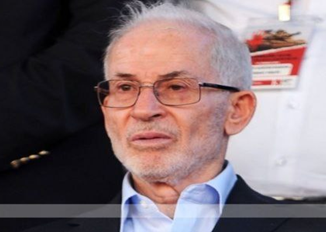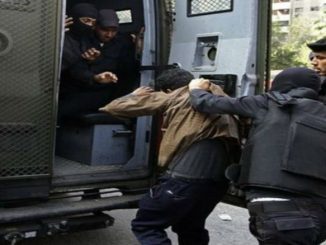Egypt’s public prosecutor Nabil Sadek decided Tuesday to summon everyone named on the “terrorist list” for investigation regarding their alleged involvement in funding Muslim Brotherhood.
In January, 1,538 people were placed on a so-called “terrorists list” by Cairo Criminal Court upon a request from prosecutors claiming that the former provided financial support to the Muslim Brotherhood group.
Penalties include freezing assets, travel ban, and loss of political rights.
It is worth to mention that the terrorist list included public figures of various backgrounds and like the popular footballer Mohamed Abu Treika as well as businessman Safwan Thabet, ex-parliamentarian Azza al-Garf, and Mostafa Sakr, a newspaper publisher.
In this context, Human Rights Watch (HRW) motioned in a statement on January 24 that the designation of citizens as “terrorists” via such lists “reflects the authorities’ indiscriminate use of broad counter-terrorism laws.”
Th rights group also pointed that such decisions impose penalties on people “without giving them a chance to defend themselves..[which] seriously violates their rights to due process.”
The terrorist lists are based on a 2015 law that organizes terrorist entities and terrorists and issued by Abdel Fattah al-Sisi in the absence of parliament.
The law authorizes the public prosecutor to request designated Cairo criminal courts to name individuals or groups to the list for three-year renewable periods.
The court has seven days to consider the request before deciding.
It is noteworthy that counter-terrorism law was previously criticized by
Human Rights Watch as it described it as a law that “erodes basic human rights.”
Human Rights Watch released a report at that time that said,” The new counter-terrorism law increases authorities’ power to impose heavy sentences, including the death penalty, for crimes under a definition of terrorism that is so broadly worded it could encompass civil disobedience.”
Nadim Houry, the deputy Middle East and North Africa director, said that “With this sweeping new decree, al-Sisi has taken a big step toward enshrining a permanent state of emergency as the law of the land.”
He added, “The government has equipped itself with even greater powers to continue stamping out its critics and opponents under its vague and ever-expanding war on terrorism.”
Moreover, Egyptian human rights groups have strongly criticized the Terrorist Entities Law for relying on an ambiguous definition of terrorism similar to the broad one included in the new counter-terrorism law.
The new Law 95 of 2015 for Confronting Terrorism largely maintains a wide definition of terrorism in Egypt’s penal code.
Under this definition, a “terrorist act” encompasses any “use of force or violence or threat or terrorizing” that aims, among other things, to: “Disrupt general order or endanger the safety, interests or security of society; harm individual liberties or rights; harm national unity, peace, security, the environment or buildings or property; prevent or hinder public authorities, judicial bodies, government facilities, and others from carrying out all or part of their work and activity.”
According to HRW,” Such a framework far exceeds a definition of terrorism that the United Nations Security Council unanimously adopted in 2004 and that the UN special rapporteur on counter-terrorism and human rights subsequently endorsed.”
” That definition says that terrorism is an act committed with the intent to kill, cause serious bodily injury, or take hostages with the aim of intimidating or terrorizing a population or compelling a government or international organization,” said HRW.
In addition , Joe Stork-HRW deputy director in the Middle East and North African Division -said,”Sending Egyptians to prison for simply exercising their rights to freedom of expression and peaceful assembly is likely to become more extensive under the new “terrorist entities” decree.”
He added,” It defines “terrorist” in extraordinarily broad terms: in addition to language about violence and threats of violence, the law covers any offense that in the view of authorities “harms national unity” or the environment or natural resources, or impedes work of public officials or application of the constitution or laws. A “terrorist” is anyone who supports such an entity – support that can include “providing information.”
Stork continued,” Imagine the dragnet that can be cast if “providing information” that “impedes the work of public officials” or “application of the Constitution” constitutes a terrorist offense.




